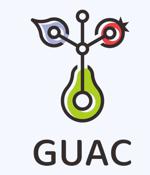Security News

The researchers used an approach dubbed 'blind quantum computing' to connect two quantum computing entities; this simulates the situation where an employee at home or in an office remotely connects to a quantum server via the cloud. Professor David Lucas, the co-head of the Oxford University Physics research team, said in a press release: "We have shown for the first time that quantum computing in the cloud can be accessed in a scalable, practical way which will also give people complete security and privacy of data, plus the ability to verify its authenticity."

Google on Wednesday announced the 0.1 Beta version of GUAC for organizations to secure their software supply chains. GUAC aims to aggregate software security metadata from different sources into a graph database that maps out relationships between software, helping organizations determine how one piece of software affects another.

While it's a thrilling development, the inevitable rise of quantum computing means security teams are one step closer to facing a threat more formidable than anything before. The team joins Google, which claimed it achieved quantum supremacy in Oct. 2019 using a "Supercold, superconducting metal," according to WIRED. IBM has also entered the quantum computing fray, while leveling criticism against Google's claims of supremacy.

When spies meet, they use secret handshakes to confirm their identities, ensuring they are who they say they are. Now, researchers at Stevens Institute of Technology, and colleagues, have solved a...

Switchzilla issues update for authentication bypass flaw Cisco has pushed out an update for its internetwork operating system (IOS) and IOS XE firmware in advance of a Usenix presentation on...

It's getting better, but is it getting better fast enough?



